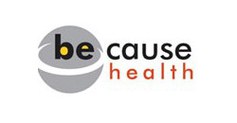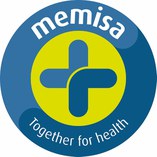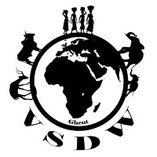Health Sciences Crossing Borders
When: Thursday 17 October 2024 (13:30 - 16:15)
Where: Campus UZ Gent, Corneel Heymanslaan 10, 9000 Ghent
For the eigth year in a row, we are organizing Health Sciences Crossing Borders. We are happy to organize this event in collaboration with the Faculty of Veterinary Medicine. The aim of this event is to showcase the many facets of internationalisation and to prepare you for an important challenge of our time: our global and hyper-diverse society.
Programme
In each time slot, you can choose between 5 different sessions.
| Auditorium C | Auditorium D | Auditorium F | Auditorium G | Fusion; The Core | |
|---|---|---|---|---|---|
|
13:30-14:15 |
Catalyzing policy improvement of adolescent health using implementation research (Baltazar Chilundo) |
The psychosocial well-being of refugees (Ilse Derlyn) |
A one health approach to combating animal and human fungal toxins disease (Siska Croubels) |
Dental mission Afghanistan (Marc Jeannin) |
International market |
| 14:30-15:15 | To the Global South: ethical considerations (Sebastian Van Hoeck) |
How to understand the codes of communication in traditional Africa? (Moctar Mbà) |
Paneldiscussie over de betaalbaarheid van zorg en interculturaliteit (Ward De Spiegelaere) |
Students Global Health (Haniyeh Maghbooli en Leyla Maleki) |
International market |
| 15:30-16:15 | Cross-cultural competence in health practice (Jeanne Boden) |
Thuis en in het buitenland: werken in diversiteit - ervaringen van een huisarts (David Vanneste) |
One health implementation of disease control: a potholed road to success |
Dealing with racism in medicine and healthcare: self-reflection for anti-racist action (Simon Gerhards) |
International market |
| Moderators: Chris Monten & Kristiane Van Lierde |
Moderators: Maïté Verloigne & Marieke De Craemer |
Moderator: |
Moderators: Martijn Lambert & Frederik De Coninck |
Catalyzing policy improvement of adolescent health using implementation research (Baltazar Chilundo)
Research led by public health master students in a decolonial and nationally-led context – the case of Mozambique
This talk covers the implementation of the global initiative called Catalyzing Policy Improvement in Africa (CPIA) for Maternal, Newborn, Sexual and Reproductive Health in Senegal, Burkina Faso, Tanzania, Uganda, and Mozambique, sponsored by the International Development Research Center (IDRC) of Canada and the United Nations University International Institute of Global Health (UNU-IIGH). Baltazar Chilundo, the CPIA Mozambique principal investigator, will share his insights on how his university has started catalyzing interaction with the wider policy-implementation ecosystem including Ministry of Health, multilateral partners and non-governmental organizations, to establish local partnerships to evaluate ongoing innovative interventions focused on adolescent health using the Implementation Research approach led by public health master students.
The psychosocial well-being of refugees (Ilse Derluyn)
Ilse obtained her PhD in Educational Sciences at Ghent University and is currently full professor in the Department of Social Work and Social Pedagogy (Ghent University), where she teaches courses in migration and refugee studies. Ilse's main research topics concern the psychosocial wellbeing of unaccompanied refugee minors, migrant and refugee children, war-affected children, victims of trafficking and child soldiers. Prof. Derluyn is heading the Centre for the Social Study of Migration and Refugees (CESSMIR) and is co-director of the Centre for Children in Vulnerable Situations (CCVS).
Migration is an important topic on the political agenda and in public debates. Yet, the group of people with a migration background in our country is highly diverse. The lecture will discuss the different definitions and legal procedures of this diverse group and discuss how their migration experiences impact their wellbeing. These reflections will then be translated into concrete tools to support this group in health practices.
A one health approach to combating animal and human fungal toxins disease (Siska Croubels)
Siska Croubels is director of the Laboratory of Pharmacology and Toxicology at the Faculty of Veterinary Medicine, Ghent University. Prof. Croubels is lecturer for the courses General Pharmacology and Toxicology. Her research focuses on the in vivo disposition characteristics of (myco)toxins and drugs in animal species, including wildlife and environmental exposure.
Her research group develops species-specific biomarkers for mycotoxin exposure, in vivo models for efficacy testing of post-harvest mycotoxin mitigation strategies, and generates insights on the impact of mycotoxins on animal health, and on their interactions with drugs and the pathogenesis of major pathogens in animals. Her group is member of the MYTOX and MYTOX-SOUTH expertise centers (www.mytox.be; www.mytoxsouth.org), dealing with the effects of mycotoxins on human and animal health in the North and South.
The One health approach is a promising way to tackle global health issues, that acknowledges the interconnectedness of human, animal (incl. wildlife), plant, and environmental health. In September 2024, a new study linked a fungal disease responsible for the mass die-off of insect-eating bat populations in the USA, with an increased pesticide use by farmers. This in turn has been associated with a raise in infant mortality rates. This talk will highlight how fungal diseases in agricultural crops are directly related to animal and human health, and how collaborative efforts across various disciplines are essential for mitigation. The results of the LEAP-Agri MYCOSAFE-SOUTH project (2018-2022) will be shown (Long term EU-Africa research and innovation Partnership on food and nutrition security and sustainable agriculture), as well as the goals of UP-RISE (EU-AU Partnership for Resilient, Inclusive and Safe food systems for Everyone, 2024-2028).
Dental mission Afghanistan (Marc Jeannin)
Dr. Mark Jeannin had a long and distinguished career as an independent general dentist at Jeannin Dental Practice in Ghent, retiring in 2021. In addition to his clinical practice, he has been a dedicated volunteer student supervisor in the Dentistry program at Ghent University for over 40 years and continues to contribute to dental education to this day.
Dental Mission Afghanistan is an initiative by Marc Jeannin, with the aim of training local students in West Afghanistan to provide basic dental care. Especially in rural areas, there are few to no dental practices, but there are many people suffering from severe toothaches often accompanied by additional health issues such as abscesses, and maxillofacial traumas and injuries. He has travelled to Afghanistan multiple times and is trying to obtain materials locally to facilitate practical training.
In this lecture, Dr. Mark Jeannin shares his experiences and discusses the current situation on the ground. How did they manage to establish a university hospital and training? What is the impact of the Taliban's takeover? How are students currently being trained?
To the Global South: ethical considerations (Sebastian Van Hoeck)
Sebastian Van Hoeck currently works for the University of Antwerp as a Global Engagement & Decolonization officer, while previously having worked for UCOS as an intercultural trainer and policy advisor with regards to North-South partnerships and student mobility. Sebastian has trained more than 8000 students before their departure to the Global South and has lived himself in Cuba, Eswatini, South-Africa, Nicaragua and Tanzania.
In an age of rapidly increasing systemic challenges, international solidarity is more needed than ever. There is a lot of enthusiasm and goodwill to contribute to change while at the same time strengthening our own intercultural skills and experiencing an international adventure. A great win-win in other words! But, contributing to positive change in the so-called Global South brings with it a plethora of paradoxes and difficulties, whereby it is sometimes unclear what the added value is of our internship for local communities and partners. High levels of power inequality, coupled with possible unconscious racism and cultural misunderstandings, may lead to no positive change taking place.
This session aims to analyze various pitfalls around class, race, culture, privilege, and motivation when undertaking an internship in the Global South and frames to combat these.
How to understand the codes of communication in traditional Africa? (Moctar Mbà)
An old master from Africa said: "there is my truth and your truth, but the truth is in the middle. To get closer to it, everyone must free themselves a little from their truth to take a step towards the other." Amadou taught this lesson to African youth and today, these words are more meaningful than ever. Defender of the traditionalist society, he recognizes that it had "its flaws, its excesses and its weaknesses". However, it was above all "a civilization of responsibility and solidarity at all levels", even at the ecological level: "Man was also considered responsible for the balance of the surrounding natural world, he was forbidden to cut down a tree without reason, to kill an animal without a valid reason. The earth is not his property, but a sacred trust entrusted by the creator and of which he was only the manager."
Paneldiscussie over de betaalbaarheid van zorg en interculturaliteit (gemodereerd door Ward De Spiegelaere)
Ward De Spiegelaere is hoofddocent aan de faculteit Diergeneeskunde van de Universiteit Gent. In 2005 behaalde hij zijn masterdiploma in de Biologie (Zoölogie) en in 2011 rondde hij zijn doctoraat in de Diergeneeskunde af. Prof. De Spiegelaere is daarnaast ook diversiteitscoördinator van de faculteit Diergeneeskunde.
Peter Grootveld is een dierenarts met meer dan dertig jaar ervaring in de zorg voor gezelschapsdieren. Hij studeerde in 1989 af aan de Universiteit Gent met een diploma in de diergeneeskunde. Na zijn afstuderen werkte Dr. Grootveld twee jaar als assistent aan de faculteit Diergeneeskunde, in de afdeling kleine huisdieren. In 1991 startte hij zijn eigen praktijk, gespecialiseerd in gezelschapsdieren, in Gent. Dr. Grootveld is zeer actief in de veterinaire gemeenschap. Zo is hij voorzitter van de wachtdienst voor Groot-Gent en leidt hij twee belangrijke syndicaten: IV-DB en VeDa (Verenigde Dierenartsen), waar hij een actieve rol speelt in de belangenbehartiging voor het beroep.
David Vanneste is huisarts met een passie voor de diversiteit op onze aardbol. Hij heeft 4 jaar gewerkt in Wuustwezel, 9 jaar in WGC Daenshuis in Aalst, 2 jaar in WGC Medikuregem en 3 jaar in WGC Rabot, telkens met een superdiverse populaties. Daarnaast heeft hij 5 jaar lesgegeven aan de KU Leuven over diversiteit in de zorg.
Deze sessie, gemodereerd door Prof. Ward De Spiegelaere, brengt een dierenarts (Dr. Peter Grootveld) en een huisarts (Dr. David Vanneste) samen, die hun inzichten, ervaringen en perspectieven zullen delen over de uitdagingen waar onze studenten tijdens hun studies, maar vooral in hun toekomstige professionele loopbaan mee te maken krijgen.
In een steeds diversere en geglobaliseerde wereld is het begrijpen van de complexiteit van betaalbare zorgverlening over verschillende culturen heen belangrijker dan ooit. Onze panelleden zullen de interdisciplinariteit van deze uitdagingen verkennen en verschillende perspectieven bieden over hoe om te gaan met betaalbaarheidskwesties in zowel de menselijke als diergeneeskundige zorg. Dit panelgesprek wil studenten een breder begrip bieden van de sociaaleconomische en culturele factoren die de toegankelijkheid en kwaliteit van de zorg beïnvloeden.
Deze sessie belooft waardevolle inzichten en bruikbare kennis voor studenten die geïnteresseerd zijn in de kruising van zorg, betaalbaarheid en culturele diversiteit, en die zich willen voorbereiden op de realiteit van hun toekomstige carrière in een complexe en onderling verbonden wereld.
Students Global Health (Haniyeh Maghbooli en Leyla Maleki)
Studying abroad offers a unique opportunity for students to immerse themselves in diverse cultures, gaining invaluable insights that extend beyond the classroom. Haniyeh Maghbooli and Leyla Maleki, two students from the Master of Global Health will share their transformative experiences, highlighting the rich tapestry of cultural interactions they have encountered both locally and internationally. By sharing their stories, these students aim to bridge the gap between academic learning and real-world application, illustrating how cultural competence is crucial in addressing health challenges.
Cross-cultural competence in health practices (Jeanne Boden)
Jeanne Boden, doctor in Eastern Languages and Cultures, Director of Cultural Quantum, has a lifetime of experience in working across cultures. She developed a practical method for achieving efficiency in cross-cultural collaboration.
Today she will explain how cultures (and medical systems) can differ and introduce the Cultural Quantum method in a nutshell.
Thuis en in het buitenland: werken in diversiteit - ervaringen van een huisarts (David Vanneste)
Dr. David Vanneste is huisarts met een passie voor de diversiteit op onze aardbol. Hij heeft 4 jaar gewerkt in Wuustwezel, 9 jaar in WGC Daenshuis in Aalst, 2 jaar in WGC Medikuregem en 3 jaar in WGC Rabot, telkens met een superdiverse populaties. Daarnaast heeft hij 5 jaar lesgegeven aan de KU Leuven over diversiteit in de zorg.
One health implementation of disease control: a potholed road to success (Sarah Gabriël)
Prof. Sarah Gabriël is currently heading the Laboratory of Foodborne Parasite Zoonoses in the Department of Translational Physiology, Infectiology and Public Health, Faculty of Veterinary Medicine, Ghent University. She has been working for 23 years in the Global South. She lived and worked for five years at the University of Zambia, in collaboration with Ghent University, and for three years in Gabon. In 2008 she was attached to the Institute of Tropical Medicine, Antwerp, Belgium. Since then, she focused her research on foodborne parasitic zoonoses. In October 2016 she established the Laboratory of foodborne parasitic zoonoses at Ghent University. Her research applies a multidisciplinary, One Health approach, including the host, parasite and environment, within Belgium, the European Union, but equally so in endemic areas in the Global South. Development and evaluation of diagnostic tools/ studies on transmission dynamics/ development and evaluation of possible control/elimination strategies are keywords in her research. She is Chair of the European Network on taeniasis/cysticercosis (CYSTINET). She has been a member of several committees/working groups for WHO, PAHO, OIE. She is a lecturer in Veterinary Public Health.
One Health recognises the close link and interdependence of the health of humans, animals, plants and the wider environment, and encourages multiple sectors, disciplines and communities at varying levels of society to work together. While the One Health approach is increasingly considered by different sectors and levels of society as the way forward to tackle complex problems, many hurdles and barriers remain.
This talk covers the implementation of the One Health approach to control a neglected tropical disease. Taenia solium, the pork tapeworm, is the most important foodborne parasite globally, and main cause of acquired epilepsy in endemic areas in the Global South. Moreover, the parasite has a major economic impact, representing a double burden on the already resource poor households. Several intervention tools are available to control this parasite, targeting the human host such as mass drug administration, sanitation, education or targeting the pig host such as treatment, vaccination, management. Nevertheless, control is hardly implemented in the Global South. In the CYSTISTOP project a One Health approach was used to eliminate this parasite from endemic villages in Zambia. The results and challenges encountered are discussed from a One health implementation perspective.
Dealing with racism in medicine and healthcare: self-reflection for anti-racist action (Simon Gerhards)
Racism pervades medicine and healthcare on individual, institutional and structural levels. Thus, talking about this complex problem is an important step for tackling racism in healthcare as well as in other fields. But as you might know from your own experience, engaging in discussions about racism can be difficult. Based on qualitative research with medical students in Germany, this interactive presentation will introduce five typical ways of dealing with racism. These ways are associated with specific difficulties and therefore provide prompts for critical self-reflection: How do I deal with racism? How can I act against it?
International market
Meet national and international organisations that are committed to improving health care in Belgium and abroad. Explore the wide range of initiatives, visit the various booths and find out more about who they are and what they do.













